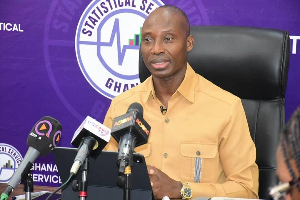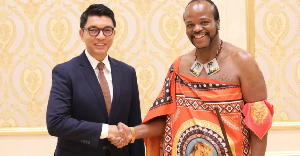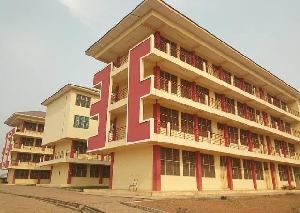The National Health Insurance Bill would soon be placed before Parliament and become fully operational by the end of the year, Vice President Aliu Mahama, said on Tuesday.
The Vice President, who said this when he launched the Ghana Health Service (GHS), the service delivery arm of the Health Ministry, urged Ghanaians to support the scheme when it is implemented.
He said: "It is better to have an arrangement that enables you to prepare and plan for inevitable but unpredictable day of ill-health by paying for a health insurance policy, rather than the "Cash and Carry" system, which makes you pay when you are ill and at your most vulnerable.
"I am convinced that in the long run, health insurance is a more humane way of paying for health services and I urge you all to support the system when it comes into being later in the year."
The insurance scheme is being tested in 42 districts by mutual health organisations, owned by the communities. Vice President Mahama stressed the government's commitment to ensure that Ghanaians stay healthy and work for the growth of the economy, saying the first step to achieving that was maintaining clean surroundings, healthy diets and undertaking regular exercises.
"Hospitals and clinics are the last points in the chain for good health... Of course as human beings diseases would still attack our bodies and this is where the government has a responsibility to provide modern health facilities and health workers to help us to recover, he said.
The Vice President, however, stressed that the major health challenge was to cut down the number of needless deaths and to secure a more widely and better trained personnel in first aid to deal with accidents.
He announced that the National Ambulance Service (NAS) would soon be introduced to improve upon the management of emergencies and disasters and the transfer of patients from one service point to the other.
Community Health Training Schools, he said, were to be established in all the regions to ensure that each community had a community health nurse. The scheme would be funded under the Ghana Poverty Reduction Strategy Framework (GPRSF).
On the exodus of health professionals, Vice President Mahama appealed to doctors and nurses to consider the moral aspect of their work and remain in the country as their patriotic duty.
"I do not ask that health professionals take a vow of poverty. Indeed, I believe they must be adequately remunerated for their services," he said and assured them that the government had been making efforts to improve upon their conditions of service."
Dr Rod Pullen, British High Commissioner, who represented the development partners of the health sector, said beneficiaries of the migrant health workers were working with the government to address the issue.
He, however, noted that in addressing the remuneration, the issue of job satisfaction should be prioritised to motivate health personnel to stay home. Dr Pullen pledged the commitment of the partners to the health sector to make them deliver the best quality service and become accountable to the public.
Professor Agyeman Badu Akosa, Director-General of the Service, out-doored the Patients Charter and Code of Ethics manuals of the service, and urged patients to expose health workers who demand illegal fees.
He said without such reports it would be difficult to stem bad conduct and attitudes. Prof. Alex Kwapong, Chairman of the Council of State, reiterated the appeal to health workers to be patriotic and serve their nation, saying, "man shall not live without bread, but man shall not live on bread alone."
General News of Wednesday, 5 February 2003
Source: gna












